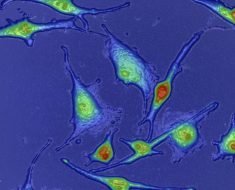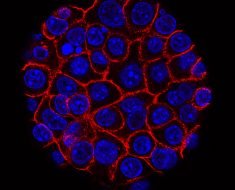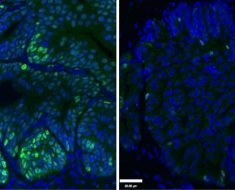The treatment approach to lymphoma depends on the type and stage of lymphoma and several other patient factors such as age and general health.
Factors that determine the therapy for lymphomas include:
Type of lymphoma
There are many types of lymphoma but they can be broadly divided into Hodgkin's and Non-Hodgkin's lymphomas. In the case of non-Hodgkin's lymphoma that is very small, the cancer may be surgically removed, with no need for any further treatment.
If the cancer is low-grade, a "watchful waiting" approach may be employed for non-Hodgkin's lymphomas as it may be many years before the cancer becomes bothersome. A much less common form of lymphoma called nodular lymphocyte-predominant Hodgkin's lymphoma may be treated with a biological agent called rituximab.
Tumor stage
For stage 1 and 2 disease, when cancer is only present in one body part, radiotherapy is often used to treat patients. More advanced or aggressive disease, however, may require a combination of chemotherapy and radiation therapy.
Treatment outline
Treatment is planned and administered by a team of specialists including a haematologist or a doctor who specializes in disorders of the blood, a medical oncologist or cancer specialist, a radiation oncologist or a cancer specialist specializing in radiation therapy and a hematopathologist who helps detect and diagnose the stage and type of the lymphoma. Other contributors include nutrition specialists, nurses and social workers.
Chemotherapy or the use of anti-cancer agents is often adopted as a primary treatment. It is administered in cycles over a few weeks, either by injection or in the form of pills. Some of the drugs used include cyclophosphamide, vincristine, doxorubicin, prednisone, fludarabine, chlorambucil, mitoxantrone, methotrexate, etoposide, cisplatin, ifosfamide, bleomycin and gemcitabine.
Radiation therapy is the mainstay of treatment for localized Hodgkin's lymphoma. Radiation therapy is the use of high-energy rays to kill cancer cells. A machine that emits the radiation may be used or a radioactive material might be placed inside the body near the cancer site or administered intravenously.
Steroids can enhance the effects of chemotherapy in non-Hodgkin's lymphoma.
A biological agent called a monoclonal antibody may be administered in the case of some types of non-Hodgkin lymphomas. The most successful and commonly used of these is rituximab.
Sources
- http://www.uhs.nhs.uk/OurServices/Cancer/Lymphoma.aspx
- www.lls.org/…/lymphomaguide.pdf
- www.lls.org/…/nhl.pdf
- http://www.cancer.gov/cancertopics/wyntk/non-hodgkin-lymphoma.pdf
- www.cancer.org/acs/groups/cid/documents/webcontent/003126-pdf.pdf
- http://www.rcctvm.org/Lymphoma.pdf
Further Reading
- All Lymphoma Content
- What is Lymphoma?
- Lymphoma Symptoms
- What is AIDS-Related Lymphoma?
Last Updated: Feb 27, 2019

Written by
Dr. Ananya Mandal
Dr. Ananya Mandal is a doctor by profession, lecturer by vocation and a medical writer by passion. She specialized in Clinical Pharmacology after her bachelor's (MBBS). For her, health communication is not just writing complicated reviews for professionals but making medical knowledge understandable and available to the general public as well.
Source: Read Full Article





